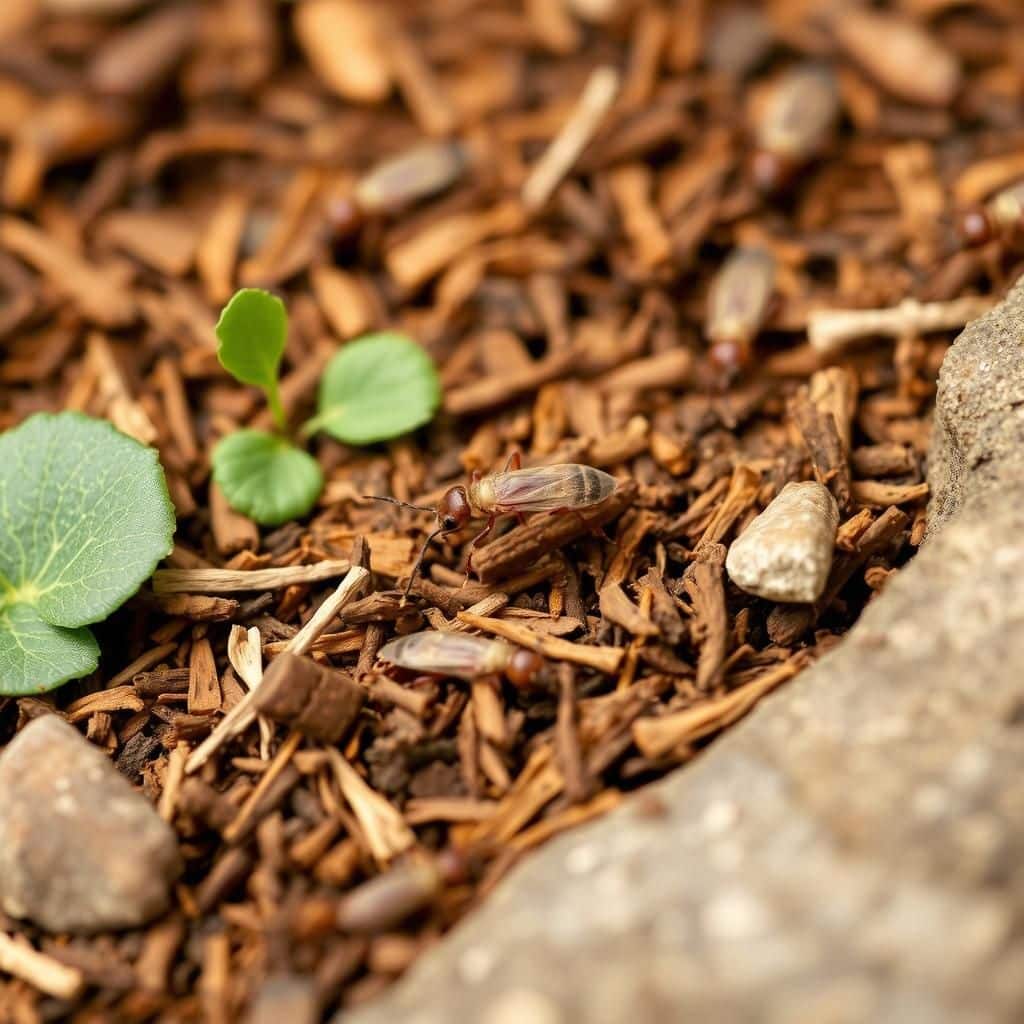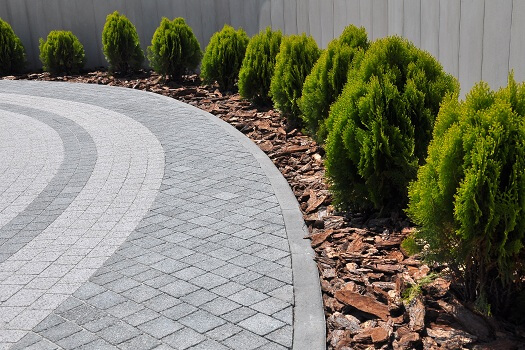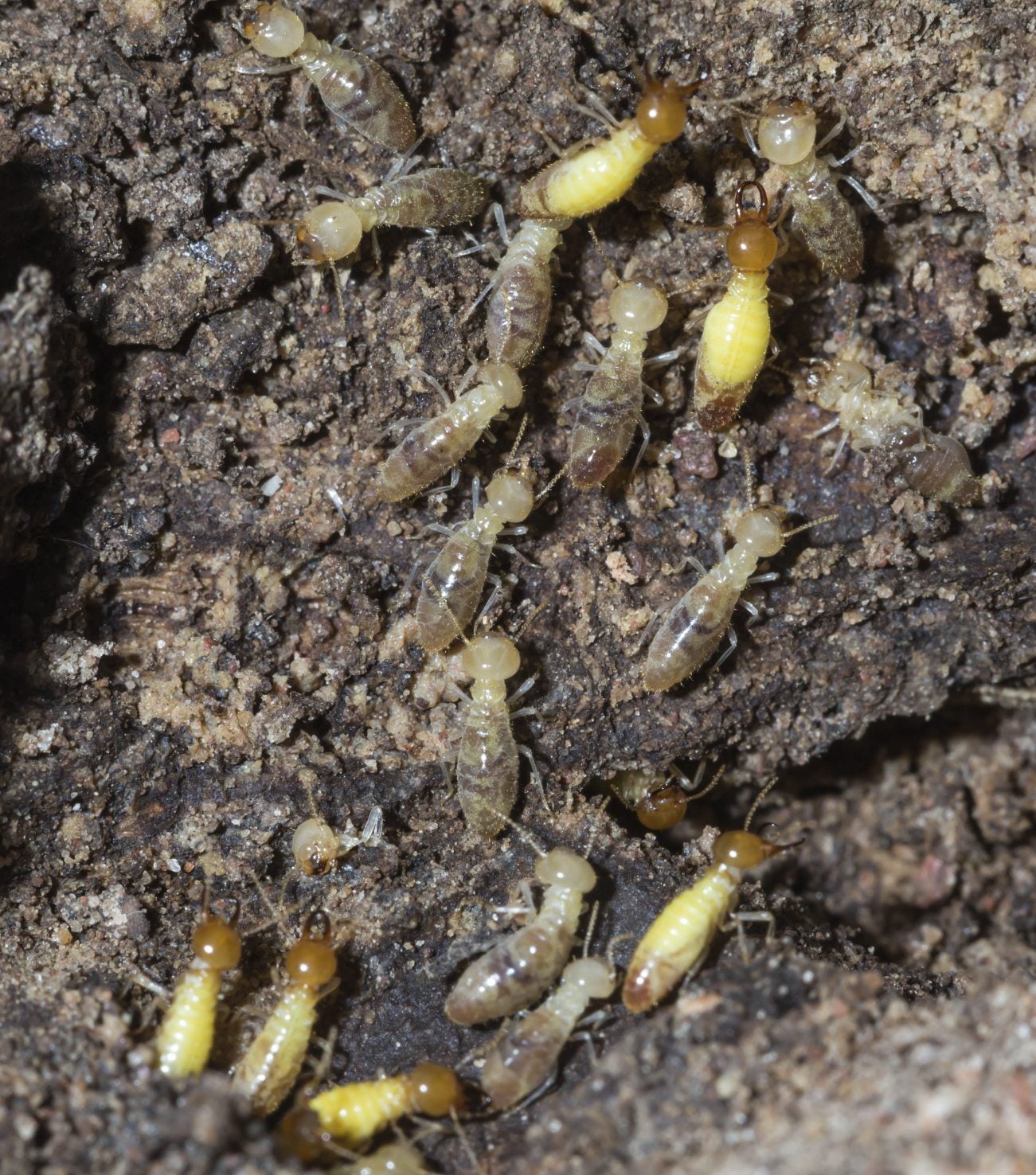What is the Best Mulch to Use to Avoid Termites in Australia? Effective Solutions and Tips

Termites pose a significant threat to homes and gardens in Australia, making mulch selection a critical consideration for homeowners. Choosing the right mulch not only enhances the aesthetic appeal of your landscape but can also serve as a barrier against these destructive pests. In this article, we will explore the best types of mulch to use for termite prevention, focusing on effective solutions and practical tips. Understanding the characteristics of various mulches, and how they interact with the local environment, will empower you to make informed decisions that protect your property while promoting healthy soil and plant growth.
What is the Best Mulch to Use to Avoid Termites in Australia?
To effectively deter termites in Australia, the best type of mulch to use is inorganic mulch, such as gravel, stone, or even rubber mulch, as these materials do not provide a food source for termites, unlike organic mulches like wood chips or bark. Termites are attracted to organic materials that can decompose, so using inorganic options helps to minimize their presence in gardens and landscaped areas. Additionally, it is crucial to maintain proper landscape design by keeping mulch away from direct contact with wooden structures and ensuring adequate drainage to avoid moisture accumulation, which can attract termites.
Why Inorganic Mulch is Effective Against Termites
Inorganic mulch, such as gravel and stone, effectively repels termites because these materials do not break down and emit any organic compounds that could attract them. By lacking a food source, inorganic mulch reduces the likelihood of termite infestations in your garden. Additionally, these materials help retain moisture in the soil while promoting drainage, providing a more stable environment for plants without enticing termites.
Benefits of Using Gravel and Stone as Mulch
Gravel and stone mulch offers several benefits; they not only deter termites but also help with weed control, regulate soil temperature, and improve soil drainage. These materials can reflect sunlight, minimizing the need for additional irrigation, and they do not require frequent replacement or maintenance as organic mulches do. Consequently, they provide a long-lasting, low-maintenance solution for homeowners.
Alternative Mulching Options to Consider
While inorganic options are effective, there are also alternative organic options that are less attractive to termites. For instance, cocoa hulls, cottonseed hulls, and cypress mulch have natural properties that may deter termites. These materials can be viable options for gardeners looking to use organic mulches without increasing termite risk, but caution should be taken, as no organic mulch is completely immune to attracting termites compared to inorganic ones.
Landscaping Tips to Prevent Termites
To enhance termite prevention in landscaping, homeowners should maintain a clear zone of at least 30 centimeters between mulch and wooden structures, such as fences and foundations. Additionally, ensuring proper drainage and not overwatering plants can reduce moisture levels that make an area more inviting to termites. Regular inspections for signs of termite activity and rotting wood are also crucial for early detection.
Understanding Termite Behavior in Australia
In Australia, various species of termites are prevalent, with their nesting and feeding behaviors significantly influenced by moisture and the availability of food sources. Termites are social insects that typically build colonies in moist environments, making gardens with excess water particularly vulnerable. By understanding their behavior, homeowners can take proactive measures to prevent infestations by making informed choices regarding mulching and landscaping.
| Mulch Type | Termite Resistance | Maintenance Level |
|---|---|---|
| Gravel | High | Low |
| Stone | High | Low |
| Cocoa Hulls | Moderate | Medium |
| Cypress Mulch | Moderate | Medium |
| Rubber Mulch | High | Low |
What is the best termite resistant mulch?

Termites can be a significant problem for homeowners, especially in areas where these pests are common. Choosing the right mulch can help deter termites. The best termite-resistant mulch includes options like cypress mulch, redwood mulch, and certain types of rubber mulch. These materials are known for their natural resistance to insects, including termites.
Cypress Mulch
Cypress mulch is well-known for its natural resistance to termites and other pests. It contains oils that help in repelling insects, making it a popular choice for landscaping.
- Durability: Cypress mulch can last for several years without breaking down, reducing the need for frequent replacement.
- Aromatic Properties: The natural oils give it a pleasant smell, enhancing the overall ambiance of garden spaces.
- Moisture Retention: Cypress mulch helps retain soil moisture, which can benefit plant health while being less attractive to termites.
Redwood Mulch
Another excellent option is redwood mulch, which also has natural insect-repelling properties. The tannins found in redwood contribute to its durability and resistance to pests.
- Longevity: Redwood mulch can withstand weather conditions better than many other types of mulch, lasting several years.
- Natural Aesthetic: Its rich color enhances the beauty of gardens, making it a favorite among gardeners.
- Less Decomposition: The slower decomposition rate means it does not need to be replaced as often, saving time and money.
Rubber Mulch
Rubber mulch, made from recycled tires, is an unconventional but effective mulch option that is sterile and has inherent resistance to pests.
- Durability: Rubber mulch can last for many years without breaking down, offering long-term protection.
- Weed Control: It is effective at suppressing weeds, which may indirectly reduce areas where termites can hide.
- Low Maintenance: Since it doesn't decompose, it requires less replacement, making it a low-maintenance choice.
Wood Chips from Non-Treated Sources
Using wood chips from non-treated sources can be beneficial, especially if they come from hardwood varieties. They are generally less appealing to termites than softwood varieties.
See also:
- Natural Resistance: Certain hardwoods, like oak and hickory, are less attractive to termites than softwoods.
- Soil Benefits: As they decompose, they enrich the soil with organic matter, improving plant growth.
- Cost-Effective: Often available for free or at a low cost, they can be a budget-friendly mulch option.
Gravel or Stone Mulch
Gravel and stone mulch are inorganic alternatives that provide excellent termite resistance since termites are not attracted to these materials.
- Long-Lasting: Gravel and stone last indefinitely without breaking down, meaning no frequent replacements required.
- Drainage: These materials improve drainage and minimize soil erosion, providing additional benefits to landscaping.
- Weed Prevention: They can effectively suppress weeds, which supports the health of desired plants.
What is the best mulch that does not attract termites?

The best mulch options that do not attract termites primarily include inorganic materials and certain naturally resistant organic materials. Here are some of the most effective options:
Inorganic Mulches
Inorganic mulches are materials that are not derived from plant sources. They provide various benefits, such as reducing soil temperature and moisture retention, while also being less attractive to termites. Common inorganic mulches include:
- Rock Mulch: Gravel, pebbles, or larger stones can be used to cover the soil, preventing erosion and weed growth.
- Rubber Mulch: Made from recycled tires, it is durable, does not decompose, and offers a colorful aesthetic.
- Plastic Mulch: Frequently used in vegetable gardens, plastic sheets can suppress weeds and retain soil moisture.
Cedar Mulch
Cedar mulch is known for its natural resistance to insects, including termites. Its aromatic oils can deter many pests, making it a great choice for gardens and landscaping. The benefits of cedar mulch include:
- Natural Repellant: The oils in cedar trees act as a natural insect repellent.
- Longevity: Cedar mulch lasts longer than other organic mulches due to its natural resistance to decay.
- Aesthetic Appeal: The reddish-brown color and pleasant smell enhance the visual appeal of any garden.
Pine Straw Mulch
Pine straw mulch, made from fallen pine needles, is another organic option that is less attractive to termites. It has several benefits:
- Textural Appeal: Pine needles provide a distinctive texture that enhances landscaping.
- Acidic Soil Enhancement: As it breaks down, pine straw can help lower soil pH, benefiting acid-loving plants.
- Lightweight and Easy to Spread: Pine straw is easy to transport and spread around plants.
Compost Mulch
While compost is primarily used for soil enrichment, it can also serve as mulch if maintained correctly. It has some deterrent effects against termites:
- Thermal Regulation: Compost tends to maintain a stable soil temperature, which can benefit plant growth.
- Nutrient-Rich: It enriches the soil with essential nutrients, promoting strong plant health.
- Moisture Retention: Compost mulch can help retain soil moisture, which reduces the need for frequent watering.
Gravel and Stone Mulches
Using gravel or larger stones as mulch is another effective way to create a termite-resistant landscape. These materials offer various practical benefits:
- Drainage Improvement: Gravel promotes better water drainage, preventing soil saturation.
- Weed Suppression: A thick layer of gravel can impede weed growth, reducing garden maintenance.
- Longevity and Durability: Gravel and stones do not break down over time, ensuring a long-lasting mulch solution.
What is the best ground cover to avoid termites?

When considering the best ground cover to avoid termites, it's essential to understand that the right choice can significantly reduce the chances of creating an environment conducive to these wood-destroying pests. Here are some effective options and practices to help manage ground cover and minimize termite infestations.
Plants That Repel Termites
Certain plants naturally repel termites due to their chemical composition. Integrating these plants into your landscaping can provide both aesthetic appeal and protection against termites.
- Marigolds: These vibrant flowers produce a scent that deters various pests, including termites.
- Lemon Grass: The oil extracted from lemon grass is known to repel termites and other insects.
- Mint: Its strong fragrance can help keep termites at bay while adding flavor to your garden.
Use of Gravel as Ground Cover
Gravel is an effective ground cover choice that minimizes moisture retention, thus making the area less attractive to termites. Its drainage properties are beneficial in preventing water accumulation, which can lead to persistent termite problems.
- Drainage: Gravel allows for better water drainage, reducing conditions favorable for termite survival.
- Non-organic: As a mineral material, it does not provide a food source for termites, unlike organic mulches.
- Longevity: Gravel remains effective over the long term without decomposing, unlike organic matter that can turn into a food source.
Creating Barriers with Landscape Fabric
Using landscape fabric under mulch or stones acts as a barrier that disrupts termite access to your home. This method is particularly effective when combined with other ground covers.
See also:
- Physical Barrier: Landscape fabric prevents termites from tunneling through the soil to reach the structure.
- Moisture Control: It helps in maintaining the soil moisture balance, making the ground less appealing for termites.
- Weed Suppression: Besides termite prevention, it also controls weeds, reducing competition for nutrients among your plants.
Considerations of Organic Mulches
While many organic mulches can attract termites due to their cellulose content, some can be chosen carefully to serve as ground cover without inviting infestations.
- Choose Wisely: Avoid using wood chip mulches and opt for options like rubber mulch or cocoa shells that termites do not favor.
- Keep It Dry: Ensure that organic mulches are not overly moist to deter termites from nesting.
- Pest Management: Regularly inspect organic mulches for signs of termites and replace them as necessary.
Maintaining Proper Drainage and Moisture
Proper drainage and moisture control in your landscape can greatly reduce the risk of termite infestations. By managing how water flows through your yard, you can create an unfavorable environment for these pests.
- Grading Your Yard: Ensure that the soil is graded away from the foundation to divert water drainage.
- Regular Inspections: Check for any pooling water or excessively damp areas where termites may thrive.
- Timely Repairs: Fix any leaks in irrigation or plumbing systems promptly to minimize moisture buildup.
How do I keep termites out of my mulch?

To keep termites out of your mulch, consider implementing a combination of preventive strategies tailored to disrupt their habitat and deter their presence. Here are detailed methods to help protect your mulch from termite infestations.
Choose the Right Mulch Material
Selecting the appropriate mulch material is crucial in preventing termite infestation. Certain types of mulch are less appealing to termites compared to others.
- Inorganic Mulch: Materials like gravel, stones, or rubber do not provide a food source for termites.
- Cedar and Cypress Mulch: These wood types contain natural oils that repel termites.
- Avoid Wood Mulch: If you use wood-based mulch, ensure it is treated or aged to minimize attraction.
Keep Mulch Away from Foundation
Maintaining a distance between mulch and your home’s foundation can help in preventing termites from gaining easy access to your property.
- Distance: Ensure mulch is kept at least 6 inches away from the foundation to discourage termite movement.
- Barrier: Use a physical barrier such as metal flashing or a layer of stone to deter termites.
- Regular Maintenance: Routinely check the mulch’s distance from structures and adjust as necessary.
Maintain Moisture Levels
Managing moisture in your mulch can also help deter termites, as they are attracted to damp environments, which promote their breeding.
- Aerate the Mulch: Turn over the mulch periodically to ensure good airflow and prevent moisture accumulation.
- Watering Techniques: Water plants carefully to avoid over-saturating the mulch; aim for optimal moisture without excess.
- Drying Out: Allow the mulch to dry out between watering sessions to create an inhospitable environment for termites.
Regular Inspections
Conducting routine inspections of your mulch and surrounding areas can help in identifying any early signs of termite activity.
- Look for Signs: Check for mud tubes, damaged wood, or discarded wings that may indicate termite presence.
- Monitor Surroundings: Inspect nearby trees, shrubs, and soil for any signs of termite activity.
- Professional Inspection: Consider hiring professionals for a thorough evaluation if you suspect a serious issue.
Consider Chemical Barriers
In some cases, applying chemical barriers can be an effective measure in repelling termites from mulch areas.
- Termiticides: Use termiticides around the perimeter of your landscaping to create a protective barrier against termites.
- Insect Repellant Granules: Apply granules in your mulch beds that are designed to repel termites specifically.
- Follow Instructions: Always adhere to manufacturer guidelines for safe and effective application of chemicals.
Questions from Our Readers
What types of mulch are recommended to prevent termites in Australia?
To avoid attracting termites, using hardwood mulch is recommended over softer types such as straw or pine needles, as hardwood is less appealing to these pests. Additionally, cocoa hulls and rubber mulch can also be good options since they are less prone to termite infestation.
How often should mulch be replaced to deter termites?
It is advisable to replace your mulch every 1 to 2 years to maintain its effectiveness in deterring termites. Over time, organic mulches can decompose and become more attractive to these pests, so regular replacement helps in keeping your garden termite-free.
Does using chemical treatments with mulch help in preventing termites?
Applying chemical treatments to mulch can be effective in preventing termite infestations, but it's essential to use them safely and according to the manufacturer's guidelines. Chemicals such as borate solutions can be used to enhance protection, but always consider the environmental impact.
Can landscaping practices influence termite presence in mulched areas?
Yes, good landscaping practices can significantly influence termite presence. Keeping mulch at least 30 centimeters away from the foundation of your home and ensuring proper drainage can reduce moisture, making the area less hospitable for termites.
See also:

If you want to read more articles like What is the Best Mulch to Use to Avoid Termites in Australia? Effective Solutions and Tips, we recommend you check out our Mulch category.
Leave a Reply
Related Articles